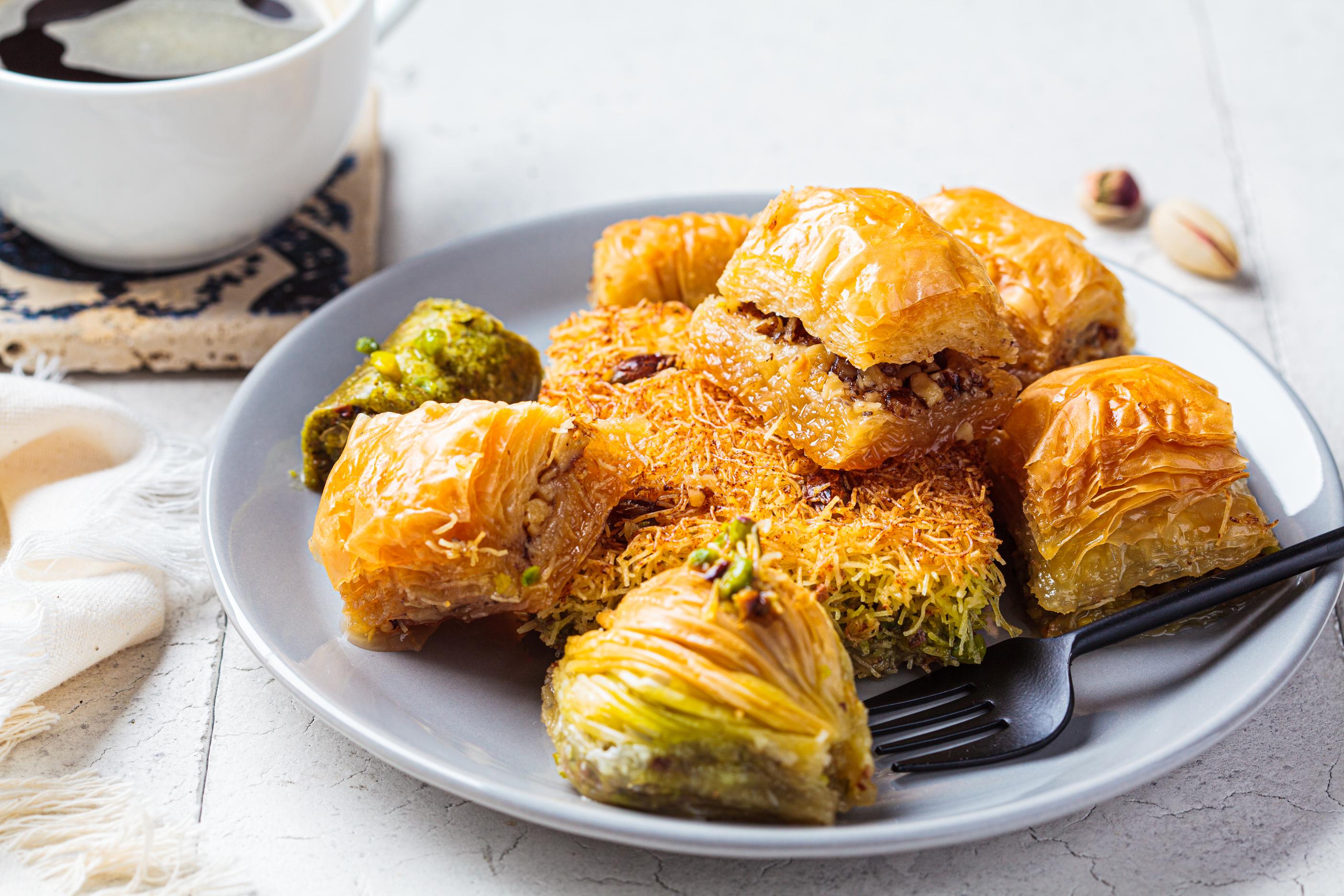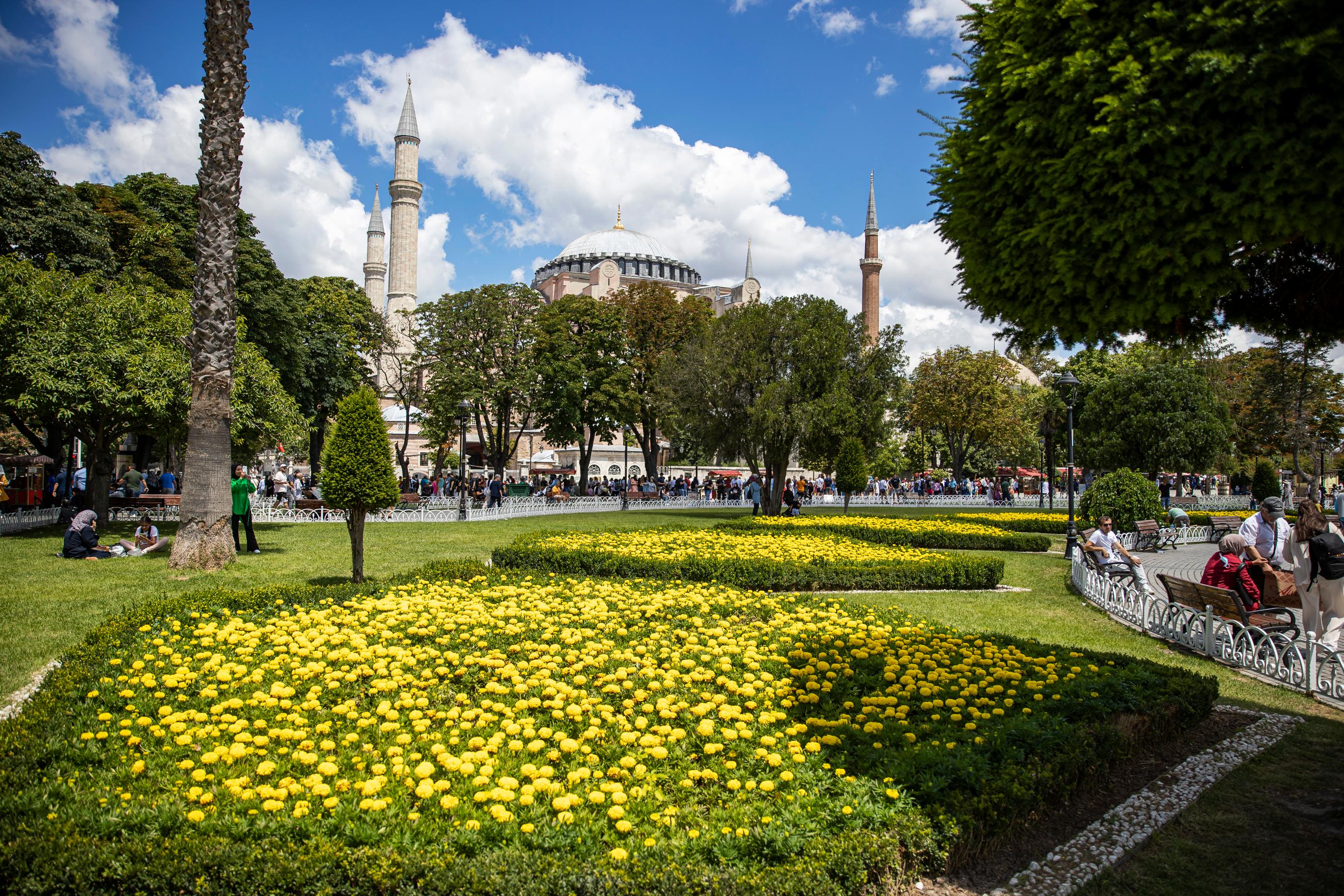
Exquisite Turkish Cuisine
A Luxury Exploration of Turkey's Gourmet Heritage and Refined Flavors
5 min read
Category : FoodDestination : TurkeyThe Imperial Splendor of Turkish Cuisine: A Luxury Gastronomic Odyssey
The magnificent tapestry of Turkish cuisine unfolds as perhaps the world's most sophisticated culinary heritage, a refined gastronomic tradition shaped by centuries of imperial ambition and cross-continental exchange. For the discerning epicurean traveler, Turkey presents an unparalleled journey through flavors that have been perfected in palace kitchens, time-honored family traditions, and the innovative hands of contemporary chefs who balance reverence for history with modern creativity. From the opulent Ottoman dishes once prepared for sultans to the artfully crafted street delicacies that reveal extraordinary complexity, Turkish cuisine offers luxury travelers a sensory experience that transcends mere sustenance to become a profound cultural immersion.
The Exquisite Mosaic of Turkish Food: From Palace to Province
Turkish food represents one of the world's original fusion cuisines, synthesizing Central Asian nomadic traditions with Mediterranean abundance, Persian sophistication, and Arabic spice knowledge. This extraordinary convergence created a culinary landscape of remarkable depth, where techniques have been refined over centuries to achieve perfect balance between simplicity and complexity, rusticity and refinement.
For the luxury traveler seeking authentic yet sophisticated gastronomic experiences, understanding the regional variations within Turkish food provides essential context. The Aegean coast offers olive oil-based preparations featuring fresh seafood and wild greens, while Eastern Anatolia presents robust flavors centered around red meats and hearty grains. The Black Sea region contributes delicate corn-based dishes and distinctive dairy preparations, while Central Anatolia offers wheat-based specialties that have sustained civilizations for millennia.
What is the culinary capital of Turkey? Gaziantep's Gastronomic Glory
While Istanbul undoubtedly offers Turkey's most diverse dining scene, true connoisseurs recognize Gaziantep (often called simply Antep) as the undisputed culinary capital of Turkey. This southeastern city became the first in Turkey to be included in UNESCO's Creative Cities Network for its gastronomy, acknowledging the extraordinary depth and sophistication of its culinary heritage.
The discerning traveler should arrange private culinary tours in Gaziantep with master chefs who can provide privileged access to family kitchens where generations of knowledge are preserved and passed down. Here, you can witness the preparation of the city's famed pistachio baklava, a process involving paper-thin layers of dough and precise syrup ratios that represents the pinnacle of Turkish confectionery art.
Gaziantep's extraordinary culinary heritage in Turkey extends beyond sweets to encompass complex meat preparations like yuvalama, a sophisticated soup combining yogurt, chickpeas, and meatballs, and its distinctive kebab variations. The city boasts over 400 local dishes, each representing centuries of refinement and regional specialization.
For the ultimate luxury experience, arrange a private dinner in a restored historical mansion where multi-course tasting menus showcase Gaziantep's seasonal specialties, paired with rare Turkish wines selected by knowledgeable sommeliers who can elucidate the renaissance occurring in Turkish viticulture.
What is Turkey's most famous food? Beyond Simplistic Categorizations
When considering what represents the most iconic Turkish food, several dishes compete for this distinction, each embodying different aspects of this sophisticated culinary tradition. Perhaps none symbolizes Turkish cuisine more internationally than kebab, yet this term encompasses dozens of distinct preparations rather than a single dish.
The luxury traveler should look beyond tourist-oriented interpretations to experience kebab in its most refined form. In Istanbul, reserve a table at Mikla or Neolokal, where celebrated chefs reinterpret traditional preparations with contemporary techniques while maintaining authentic flavor profiles. In Adana, arrange private dining experiences where the city's eponymous kebab, a precisely spiced minced lamb preparation, is grilled to perfection over open flames.
Beyond kebab, the sophisticated meze tradition represents another pinnacle of Turkish cuisine. These small plates, ranging from simple vegetable preparations to complex seafood compositions, demonstrate the Turkish mastery of flavor balancing. Arrange private meze tastings at establishments like Karaköy Lokantası in Istanbul, where seasonal variations showcase the depth of this tradition.
For sweet conclusions, Turkish lokum (known internationally as Turkish delight) and baklava represent the sophisticated confectionery tradition that developed in Ottoman palace kitchens. Visit multi-generational establishments like Hacı Bekir in Istanbul, where the same family has been perfecting these sweets since 1777, offering private tastings of varieties rarely available to the general public.
What is the Turkish cuisine background? The Imperial Heritage
The historical foundation of Turkish cuisine begins with the nomadic traditions of Central Asian Turkic peoples, who brought techniques like grilling meats and yogurt production as they migrated westward. However, the true flowering of sophisticated Turkish cuisine occurred during the Ottoman Empire, when the imperial kitchens at Topkapı Palace employed over 1,300 cooks specializing in distinct culinary departments.
This culinary heritage in Turkey reached its apex during the Ottoman period through several distinct advantages: access to ingredients from an empire spanning three continents, the competitive innovation among palace chefs seeking to impress the sultan, and the cosmopolitan exchange with conquered territories that brought new techniques and flavors into the imperial repertoire.
For the luxury traveler seeking deeper understanding, arrange private access to the imperial kitchens at Topkapı Palace with culinary historians who can elucidate the sophisticated organization system that produced feasts of up to 200 dishes for important ceremonies. These kitchens, recently restored and opened for specialized visits, provide fascinating insights into the development of refined Turkish cuisine.
Continue this historical exploration with exclusive cooking workshops in Istanbul, where descendants of Ottoman palace chefs demonstrate techniques preserved through generations, teaching sophisticated preparations like hünkar beğendi ("the sultan's delight"), tender lamb served on a silky eggplant purée that exemplifies the refined balance characteristic of palace cuisine.
What is the street food culture in Turkey? Sophistication in Simplicity
While street food might seem contradictory to luxury travel, Turkey's remarkable street food tradition offers sophisticated experiences that transcend casual dining. The true connoisseur understands that many of Turkey's most exquisite culinary creations originated as street foods before being refined through centuries of expert preparation.
In Istanbul, arrange private street food tours led by culinary experts who can guide you to the most exceptional practitioners, bypassing tourist-oriented versions to discover authentic mastery. Experience midye dolma (stuffed mussels) prepared by specialists who have perfected the delicate rice filling over decades, or simit (sesame-encrusted bread rings) from bakeries that have maintained wood-fired ovens for generations.
The sophisticated traveler recognizes that luxury lies not always in formal settings but in the extraordinary quality and authenticity of the experience. Arrange private demonstrations with master craftsmen like the borek makers of Fatih, whose hands shape paper-thin dough with balletic precision developed through decades of daily practice.
For a refined interpretation of street food traditions, visit establishments like Çiya in Istanbul, where chef Musa Dağdeviren presents meticulously researched regional specialties in a setting that honors their authentic preparation while providing comfortable surroundings for appreciation.
Contemporary Expressions of Culinary Heritage in Turkey
Turkey's gastronomic landscape continues to evolve, with innovative chefs creating contemporary interpretations that honor traditional techniques while introducing modern perspectives. In Istanbul, restaurants like Mikla (featured in the World's 50 Best Restaurants list) present "New Anatolian Kitchen," sophisticated reinterpretations of traditional Turkish cuisine using modern techniques while maintaining authentic flavor profiles.
For the ultimate luxury dining experience, arrange chef's table reservations at establishments like Turk by Fatih Tutak or Neolokal, where tasting menus showcase Turkish cuisine through a contemporary lens. These dining experiences often include personal interaction with the chefs, who explain their philosophy of preserving culinary heritage while contributing to its evolution.
The sophisticated traveler should also explore Turkey's emerging wine scene, where ancient varietals like Öküzgözü and Boğazkere are being rediscovered through modern vinification techniques. Arrange private tastings at boutique wineries in regions like Thrace and Cappadocia, where knowledgeable winemakers can introduce you to limited-production vintages that perfectly complement the complex flavors of Turkish cuisine.
Creating Your Bespoke Culinary Journey
The truly discerning traveler understands that experiencing Turkish cuisine at its most authentic and refined requires thoughtful planning and specialized access. Consider these approaches to creating a memorable gastronomic journey:
Arrange private cooking lessons in historical mansions along the Bosphorus, where expert chefs can guide you through the preparation of sophisticated Ottoman recipes while explaining their historical context and regional variations.
Combine culinary exploration with historical context through specialized food-focused tours of archaeological sites, where culinary historians can explain the evolution of Turkish food traditions from ancient civilizations through Byzantine and Ottoman periods to contemporary expressions.
Time your visit to coincide with seasonal specialties, perhaps experiencing the black truffle harvest in Kastamonu or the saffron harvest in Safranbolu, where private arrangements can provide access to harvesting activities followed by exclusive dining experiences showcasing these precious ingredients.
For those seeking the ultimate immersion in Turkish cuisine, commission a private culinary journey across multiple regions, where expert guides facilitate access to family kitchens, local producers, and exceptional dining establishments typically inaccessible to visitors, creating a comprehensive understanding of Turkey's extraordinary gastronomic landscape.
The sophisticated traveler recognizes that Turkish cuisine represents one of the world's great culinary traditions, offering depth, complexity, and refinement that rewards thoughtful exploration. Whether dining in restaurants that have maintained traditions for centuries or experiencing contemporary interpretations by innovative chefs, the gastronomic heritage of Turkey provides the discerning epicurean with incomparable experiences that combine historical perspective with sensory pleasure, a true luxury of both mind and palate!
Related Articles

Uncover Best Istanbul Tourist Places
Uncover the best Istanbul tourist places that offer experiences that transcend ordinary tourism, creating memories that linger long after departure.

Exclusive Hot Air Balloon Rides in Cappadocia, Turkey
Ride a Hot Air Balloon in Cappadocia, Turkey, Discover Luxury Sunrise Views Over Fairy Chimneys and Valleys | Book Your Adventure Today.

Extraordinary Things to Do in Cappadocia
The distinctive things to do in Cappadocia blend natural wonder, historical significance, and refined experiences that create memories to be treasured for a lifetime.
